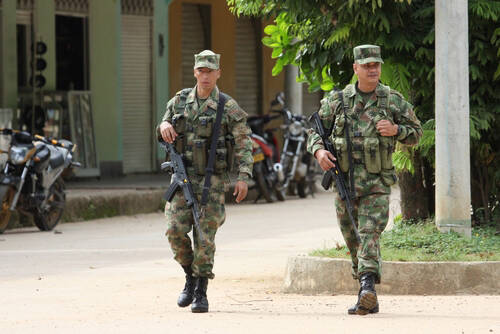The Chief Negotiator for the Revolutionary Armed Forces of Colombia, better known by its Spanish acronym FARC, says the conflict in Colombia, which has been dragging on since 1964, is almost over, according to a report from Vatican Radio.
The latest peace negotiations began in Oslo in November, then moved to Havana, Cuba. Chief FARC Negotiator Ivan Marquez says peace is in sight. He warned, however, against what he's terming undue government “haste.” Colombia government negotiators are seeking a finalized agreement by November. Marquez has told Colombian television that an inadequate settlement is worse than war itself.
On May 26 the Colombian government and the (FARC) signed an agreement on land issues, marking a critical milestone in the on-going peace process. A joint press release issued then highlighted that the accord promotes the return of stolen land to internally displaced people. Land reform is one of five agenda items that the negotiating parties agreed to address, alongside political participation, illicit drugs, decommissioning weapons and victims’ rights. The government of Colombia reiterated that the entry into force of the agreement on land issues is conditional; its implementation depends on reaching agreements on the remaining four issues.
The even more delicate process of the FARC laying down their arms and evolving into a political party has still not been finalized. Marquez, who was involved in unsuccessful negotiations back in 2002, remains hopeful saying there is a formula and he's met with groups from Northern Ireland who proved it can be done. Tens of thousands of people have died during this conflict and by some estimates more than five million Colombians have been displaced by the violence.
Land restitution is particularly important for displaced indigenous people and Afro-Colombians, who have a special attachment to their land. According to OCHA, they represented 37 percent and 13 percent, respectively, of victims of mass displacement episodes in 2012, and make up three and ten percent of the country’s population.








